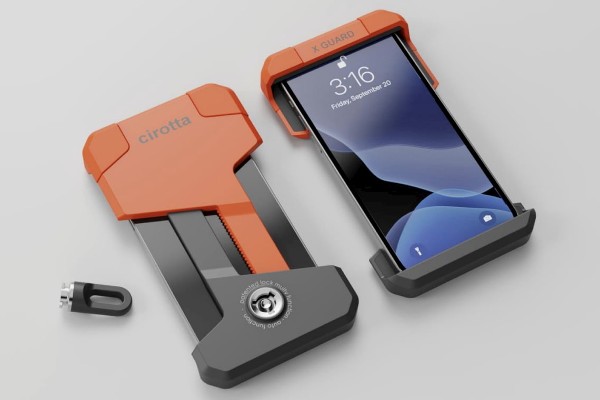“People are dying to get their privacy back,” said the founder of an Israeli company that created anti-hacking phone cases.
By Pesach Benson, United with Israel
Hackers can all too-easily turn smart phones against their owners. By gaining access to a phone’s camera, microphone, GPS, wifi or Bluetooth connections, criminals can easily track owners’ movements and steal their phones’ data. Indeed, poor phone security has been cited for the high number of senior Russian military officers killed in Ukraine.
But an Israeli startup has come up with a novel innovation: a phone case that protects the phone from being hacked. Shlomi and Eran Erez, the father-son duo behind the Tel Aviv-based mobile security company, Cirotta, have developed a phone case they describe as “almost bulletproof” against hackers.
Eran Erez explained to No Camels that the cases use audio-frequency-based algorithms to block external access to all the points that hackers might try to compromise, without disrupting the owner’s use of the same features.
The case works independently of the phone, is not network-specific, and comes with no apps. Users can create multiple configurations to meet their personal mobile needs. A press release said the case has six different patents in its technology.
A VentureBeat review of the phone case noted, “The advantage of using the case is that the device is always on the phone. And you can also build extra security hardware into the case that isn’t on the phone, which is always hackable. The case weighs about seven ounces, and so it doesn’t add that much weight to your smartphone. And it’s not a huge outlandishly large case either.”
The cases aren’t cheap, however, costing $200. But for the time being, Cirotta is primarily marketing them to government and military officials, corporate executives, private security organizations and research, and development centers.
According to NoCamels, cases tailored for the iPhone 12 and 13 Pro devices and the Samsung Galaxy S22 are already available with other universal models expected to be available next month.
“People are dying to get their privacy back. This could be a fit for both industry and private sector – all are thirsty to get their security back to them,” Eran Erez told NoCamels
